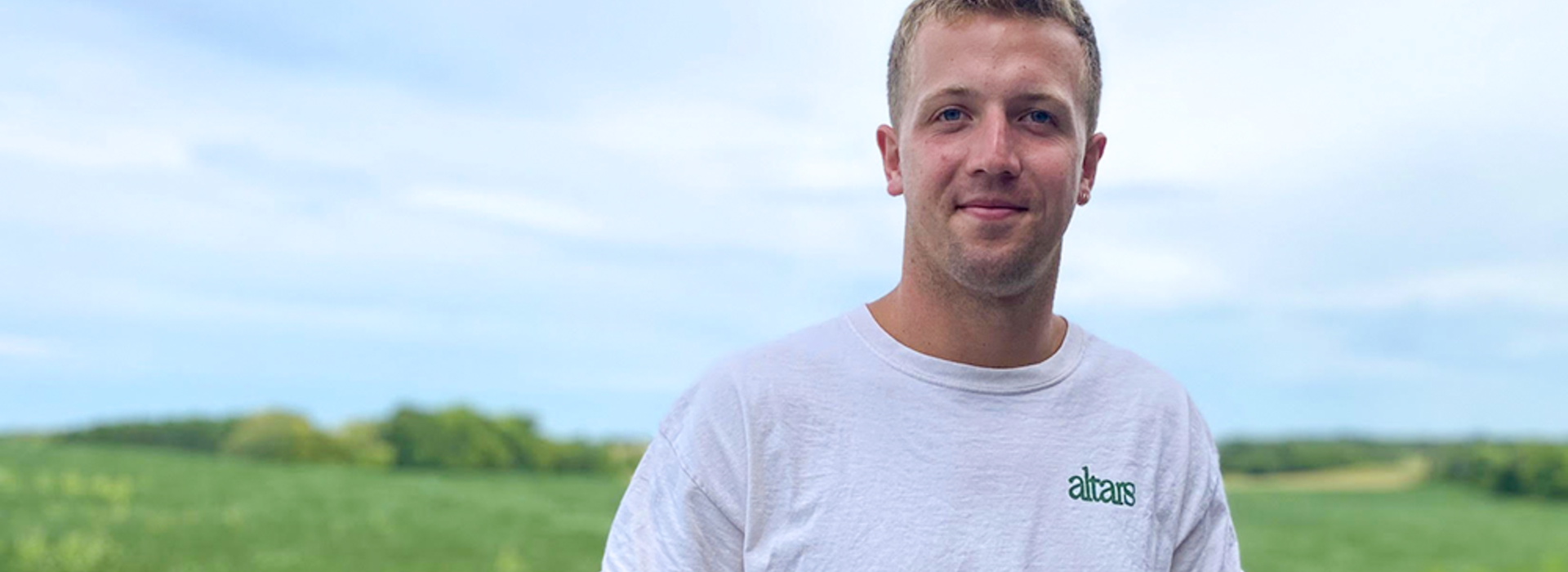
Welcoming the Class of 2024: Brett Norling
Brett Norling spent a bit of time at the doctor’s office as a child. He remembers repeated trips, for several years, to see his Loretto, Minn., family physician for strep throat—sometimes two or three times per year.
“Fortunately, nothing serious came out of it, but that’s the earliest memory I have of really considering being a doctor,” Norling said. Then, during his junior year of high school in the game before the state football tournament, Norling broke his thumb. Injured and devastated, he made yet another trip to the clinic.
“The surgeon who repaired my thumb was just amazing,” Norling said. “I briefly mentioned to him, ‘Hey I’m thinking about a career in medicine,’ and he was really adamant that I come in to shadow him.”
Norling watched several surgeries and witnessed the surgeon’s interactions with his patients. Yet, the special care Norling received from the surgeon ultimately solidified his decision to pursue medicine.
“I felt like he administered a level of care to me that was just so personable,” Norling said. “I’m this 17-year-old kid, and I’m really torn up about losing the ability to play football, but in that moment, he really prioritized that feeling and spoke to it.”
Norling later earned his undergraduate degree at Bethel University. Because he stayed in the state, he’s closer to his family than ever before, and he’s growing his own—next spring, he’ll marry the love of his life. Earning his medical education at the University of Minnesota Medical School simply makes sense.
“That’s not to say that I didn’t really admire the school,” Norling said. “You can probably find great faculty and great facilities anywhere at medical schools across the country, but one of the things I really loved about the U was its reputation for being a leader in healthcare. When you look at what the Medical School is doing by trying to integrate with other health systems and creating a continuity of care, that’s important to me. So, after I got accepted, I canceled all of my other interviews.”
As he begins his first year as a medical student, Norling looks forward to learning—both mentally and culturally. He says he “comes alive” when rigor presents itself, and the challenge of a medical education excites him. Yet, he hopes, too, that he can use this experience to further his appreciation for other cultures and their values.
“I grew up in a very homogenous town and went to high school where everyone was white. Then, in my undergrad, I had another homogeneous experience at a Christian university,” Norling said. “I’m excited to meet people who are different from me. I think I’ve started that process, but I don’t ever want to stop that or think I’ve arrived. At the end of this experience, I hope to be a resident, and then a practicing physician, who really tries to maximize the wellbeing of somebody else.”